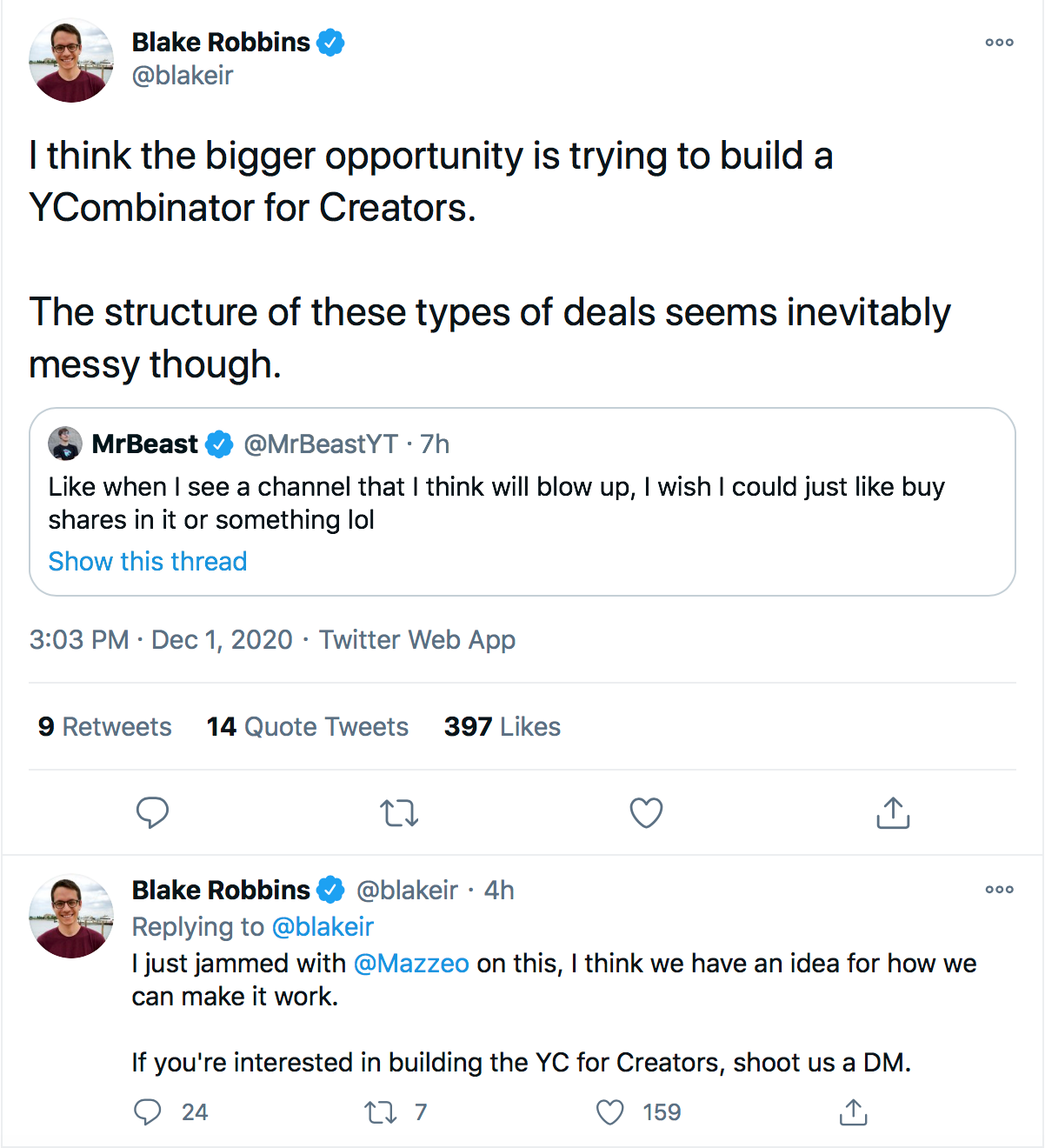GZV #20: Social Music and Investing in Influencers?
Startups. Trends. Markets. All from a Gen Z view.
Can I say Happy Holidays yet? I don’t want to say it too early, but I also don’t want to miss the boat for the easy email outro…
Please share so I can keep producing weekly content!
Find me on Twitter and Clubhouse: @tdozzi
Thomas@genzvoice.com
Enjoy!
💥GZV Sourced💥
The first edition of my paid-only newsletter will go out next week, on 12/9.
This newsletter is focused exclusively on early-stage startups I come across and believe have a bright future ahead of them. I have 5 on the docket for next week!
Be sure to get the first edition in your inbox next week, and feel free to reach out with questions! There are still spots left for a 25% discount!
Let’s me Introduce you to SameTunes…
Special Note:
You know what’s interesting, I am writing this article just as Spotify Wrapped is hitting your social media feeds. It’s obvious that music, especially within Gen Z, is a part of our personality.
Problem:
There is no place for people to connect over music.
Product:
“SameTunes is a music social network. You can compare your music libraries, generate shared playlists, and discover new music.”
What’s good about it?
Being in Gen Z I have never seen an app that connects people based on their musical taste.
Exit strategies seem endless, could easily be picked up by Spotify, Instagram, or maybe even Google.
Gen Z View: If the product is good, I can see this becoming success in the Gen Z market
On the surface this product is intriguing enough to get the eyes of Gen Z, so if the product is good, retention rates will be high.
Throughout generations, Gen Z included, music has been a way to express ourselves. SameTunes allows us to connect over music like never before.
💸💸💸 Fundraising? 💸💸💸
Yes, check out their one pager here on OpenScout (also raising, adam@openscout.vc).
SameTunes email: kris@sametunes.com
Investment Idea:
Gen Z loves music. In fact, I calculated that 9 friends of mine listened to a combined 308 days worth of music. Any startup that tries to change around the music industry or do something new and innovative, has a chance of becoming successful.
Gen Z Sourced
If you sign up for Gen Z Sourced you’ll get multiple startups in your inbox every week!
New and Exciting Markets…
Why this could actually work.
There are a few reasons why this could work…
Now, more than ever, kids want to be influencers. Some of these kids are actually good and have a chance, so giving them momentum from an early beginning, like you would a startup, can help in the long term.
People are diversifying their investments now more than ever. Look at Otis, on their platform you can invest in comics, art, sneakers, and more. With a market as large as the influencer market why couldn’t you invest in people from the beginning?
In YC, advisors of successful startups help early stage startups avoid pitfalls in the roads to success. Same type of system could apply here. Imagine Mr. Beast mentoring 5-10 early stage youtubers to help them avoid the pitfalls that he faced.
Are their any potential cons?
There is one major con that I see, and it actually comes from the paragraph above; Everybody wants to be an influencer, you would receive thousands of applications.
There is simple way around this I believe. Just provide a few barriers to entry. In my mind, if an influencer has a chance to become big they will grow naturally at the beginning. Here are some ideas for requirements to apply,
Minimum 2500 followers on instagram, 5000 on tik tok, and 3000 on youtube. (Obviously these numbers can be changed)
Consistent posting for a year and a half. Influencers put hours into their craft before getting big, applicants need to show they have this drive.
How would you structure the deals?
This is the million dollar question, YC typically takes 7% of the company for $125,000. For influencers you would have to structure them in some sort of income share agreement, where the “YC for Influencers” takes 5% of the next 5 years of earnings or something like that.
Here’s a crazy idea though.
Imagine a company that buys influencers like they are startups. In my mind, these companies would have a “portfolio” of influencers that drive revenue to the company, and then this company takes the earnings and pays the influencers a fair share. This way influencers could actually have a value to them. Let’s say an influencer makes $1 million a year in ad revenue, the company would buy them for $4 million (assumes avg 4x multiple). Idk, just an idea.
Feel free to email or text with any questions or comments about the newsletter, Gen Z, or startups.
thomas@genzvoice.com




